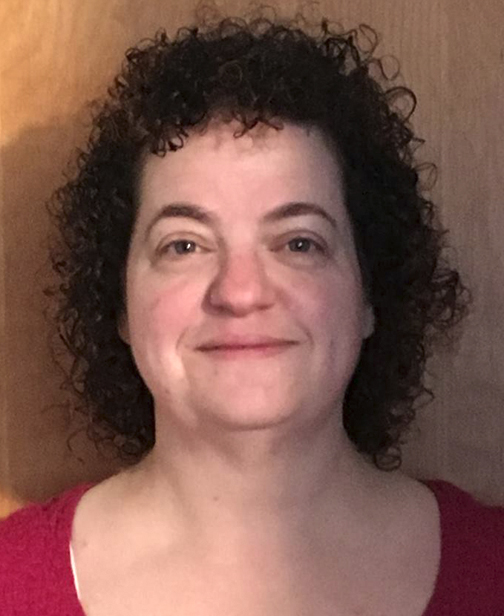The bitter and the sweet

By Rabbi Haviva Horvitz, Temple Beth Sholom, Middletown
Have you ever noticed that in the Torah, the Hebrew names that are familiar to us for the months are not mentioned? For that matter, most of the time, only numbers are used. Passover is celebrated on the 15th day of the first month; Rosh Hashanah (as we call it), Yom Truah (the day of shouting or blasting, as in the shofar), is observed on the first day of the seventh month; and so on.
The actual naming of the months came about during the Babylonian time period (approximately 626-539 B.C.E.).
Therefore, it is not surprising that the month following Tishri has two and a half different names: Marcheshvan, Cheshvan, and Bul. The prefix mar can be translated to mean bitter, so since no one wants a bitter month, it is frequently removed, and the month is simply referred to as Cheshvan. Mar can also be interpreted as drop, as in a drop of water, which is appropriate because the prayers for rain begin annually during this month (after those who went to Jerusalem for Sukkot are assumed to be safely home).
Similarly, the name Bul may be a shortened name stemming from the longer word mabul, which means flood. The belief is that The Flood, as in Noah and the ark, both began and ended during this month.
It was the first explanation above, the idea of the bitter month, that I was taught as a child. This month has no holidays or special mitzvot (commandments) associated with it.
Following a month that is overwhelming with events, a roller-coaster of emotions, and a great deal of food, it can feel anticlimactic to have a bare month.
But perhaps it is necessary to reestablish routine. As I have grown older, I have come to appreciate the down time, the time off — a month to reorganize and refocus, especially so early in the year.
It gives us the opportunity to plan, and to review our plans; to make changes as necessary and to reflect on where we want to go and how we intend to get there. What do we want to do during this new year?
Rabbi Ari Goldwag of Ramat Beit Shemesh, Israel explains in an essay at Aish.com: “The message of Cheshvan is that despite the darkness, and even because of the darkness, there is future growth that awaits us. We have the opportunity to nurture that right at this moment. It is now that we gather the seeds from the holidays of the month of Tishri, plant them, and carefully water them through the winter months. With God’s help, we will soon marvel at the beautiful spring bounty that we merit to cultivate.”
But this past year, thanks to Covid, has been different, so how we begin 5782 will need to be different. We have been given this wonderful opportunity to reflect on the lessons which have been presented to us over Rosh Hashanah, Yom Kippur, and even Sukkot.
Perhaps, as we return to routine, we can do so with some new insights. But what is routine these days? We are still far from what we remember as normal, and we don’t know when or even if that will happen again. For that matter, this constant not knowing what is the best way to create a new routine is frustrating and causes other issues and more stress for everyone.
As rabbi of Temple Beth Sholom of Middletown, I have found it necessary to look at the big picture. I am available for my congregation and my community, but decisions were made this past High Holy Days season and these decisions were not easy.
It was a last-minute choice, for example, to keep the services in the building, but to require masks. The members of Temple Beth Sholom agreed on these safety precautions. I realize that not everyone sees things the same.
Last year, according to some, just when the community connection of the synagogue was needed most, some congregations were forced to close people out, both figuratively and literally.
Perhaps that was a mistake, but it is usually better to err on the side of caution. This pandemic is not normal, and we are all still learning how to react and how to respond. What we need now is to learn to be patient with others and try to listen and understand other viewpoints.
How we interact with each other must change, as we are all adjusting to the strange world around us. If we have learned anything from this Rosh Hashanah and Yom Kippur, I would hope we have learned to apologize and to forgive — not because of something that we have done or that was done to us that was necessarily wrong — but because of how we made others feel. Did we really listen to others? Did we accept that maybe there is more than one right way to feel?
As the quote from Rabbi Goldwag alludes, how we handle ourselves during these empty and difficult times are the seeds which will determine what is grown in the future. If we can learn to work together, united to make this world a better place, then the future will be full of forgiveness and understanding.
There are those who believe that when the time eventually comes, the Third Temple in Jerusalem will be completed and celebrated during the month of Cheshvan. Rather than a bitter month, think of Cheshvan as a month full of hope, potential, and possibilities. As a friend recently posted on Facebook: “Maybe it’s not about deciding who needs extra kindness, but knowing everyone does.”
May 5782 be filled with patience, understanding, and acceptance.
To read the complete October 2021 Dayton Jewish Observer, click here.



